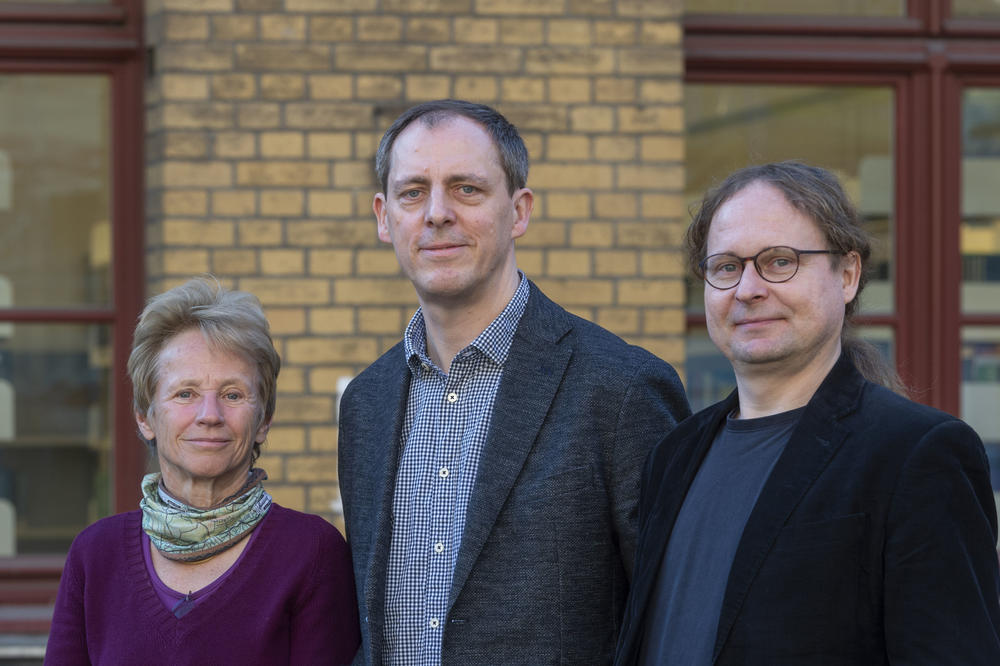How Does Gender Affect the Aging Process?
Scientists at Charité and Humboldt-Universität zu Berlin are researching the effect that biological and sociocultural aspects of gender might have on illnesses in older people.
Mar 06, 2019
What role does gender play in contracting typical geriatric diseases? Why do some people remain fit into a ripe old age? These and other questions will be addressed by the GendAge project.
Image Credit: Matthew Bennett/unsplash
People are living longer. However, some of us succumb to diabetes or cardiovascular problems, while others, exposed to the same risk factors, remain healthy for much longer. Why is this? What might be the role of gender in contracting the illnesses typically associated with old age? Up to now, we have scant answers to these questions.
Scientists across the university are however tackling them as part of the project entitled “GendAge – gender-related predisposition to cardiovascular and metabolic disease in older people in Germany.” Members of Charité - Universitätsmedizin Berlin involved in the project are Professor Vera Regitz-Zagrosek, Director of the Institute of Gender in Medicine, and Professor Ilja Demuth of the Department of Endocrinology, Section for Lipid Metabolism and head of the Biology of Aging working group. At Humboldt-Universität zu Berlin, Professor of Psychology Denis Gerstorf is also a participant. “What we would like to do is form a more sophisticated picture of aging with a view to improving health and preventing disease in the individual. We would be in a position to apply therapies more accurately,” says group coordinator Demuth. GendAge has received 1.2 million euros from the German Federal Ministry of Education and Research (BMBF).
The way a person ages depends, among other things, on their gender.
GendAge has access to pre-existing data from a group of 1,600 men and women aged between 60 and 80 that were collected by researchers at the Berlin Aging Study II (BASE-II) between 2009 and 2014. Along with physical health, cognitive functions were tested; the survey also investigated attitudes toward aging as well as quality of life, housing, and life situations. A second survey of this group was set in motion in 2018 under the GendAge project.
The way a person ages depends not only on their biological sex, immune system, genetic factors, and behavior, but also on their gender. “There is increasing evidence from empirical studies that gender – as a complex mix of various sociocultural factors – has a strong influence on illness,” says Regitz-Zagrosek. Among the above factors are whether a person is living alone or together with a partner, how much they assume of the daily household chores, who takes care of the family, what the career situation is, and how they view themselves and their position in society.
Left to right: Professor Vera Regitz-Zagrosek, Professor Ilja Demuth of Charité – Universitätsmedizin Berlin, and Professor Denis Gerstorf of Humboldt-Universität zu Berlin.
Image Credit: Bernd Wannenmacher
GendAge is the first German study to examine gender differences in older people – yet the area is obviously an important one. “Current studies show that the sociocultural construct is more frequently associated with risk factors for the cardiovascular system than a person’s biological sex,” Regitz-Zagrosek is keen to emphasize. For this reason, the researchers want to develop and validate a so-called “gender score.”
“We use a statistical process to calculate the weighting that should be attributed to certain variables in the socio-cultural area,” Demuth explains. On one side of the scale (from 1 to 100), more masculine propensities are dominant, such as less time at home or a higher income. On the other side are the propensities more commonly allocated to women. Yet our understanding of roles and tasks is in flux: fathers are taking parental leave and in many families, women are the principal earners. “The attribution of propensities, or traits, is constantly changing, which is very exciting,” adds Demuth.
The researchers hope that the gender score, with its inclusion of individual sociocultural aspects specific to each person, will be far more precise in predicting individual aging and the associated risk of disease than an evaluation based purely on biological gender. “In achieving support for GendAge up to 2021, the Berlin Aging Study BASE-II changes from a cross-sectional to a longitudinal study,” says Demuth. In May 2018 the process of inviting test persons to attend new medical examinations and question sessions at Charité was relaunched. There has been an interval of roughly six years between the first and second studies. “For as long as possible, we would like to continue to see test persons at these intervals.”
Health – for Life
The blood and urine samples from the first study were frozen and can be used for further research and comparative study. At that time, the study was already determining the length of telomeres – DNA sequences at the end of the chromosome – and the correlation with muscle mass in test persons’ arms and legs was recognized. The loss of muscle mass with the onset of age is an increasing problem in an aging society because it is associated for example with a general decline in mobility and an increased risk of falls. The longer the telomeres, the more frequently cells can divide. The length of telomeres is a classic biomarker in aging, since it decreases with age. Here, lifestyle plays a significant part: Even moderate changes toward a healthier lifestyle can slow down telomere shortening.
Demuth has in mind to study a characteristic set taken from eight places in DNA blood samples, which can be modified naturally and to various extents by attaching a methyl group. “We have only recently understood that certain parts of these so-called epigenetic changes are in close correlation with the chronological age of the person. This is why they are called the ‘epigenetic clock.’” Does the deviation of the epigenetic clock from the chronological age reflect biological age, and is it a better indicator than telomeric length? Is the difference between epigenetic – or biological – and chronological age associated with other significant signs of aging, such as diabetes or cardiovascular disease? And have the age biomarkers in BASE II subjects changed since the first study? GendAge sets out to answer these questions.
Health – for life. A gender-sensitive medical profession might be an important step toward this goal.


